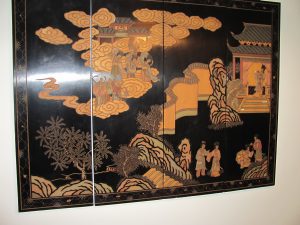Balance. Purpose. Enlightenment.
Confucius: One of the Great Ones We Honor
About 500 years before the Advent of Christ, a great wave of spiritual illumination swept the world. Some of the greatest religious and moral teachers – Confucius and Lao-Tse in China, Buddha in India, Zoroaster in Persia, Socrates and Plato in Greece – incarnated nearly simultaneously and their accomplishments were phenomenal. Doesn’t this seem like the outworking of a farseeing plan to prepare the way for Christ?
Confucius (Kung-fu-tze) may have had more influence over more people for a longer time than anyone other than Christ. His philosophy, laws, and literature became Chinese national classics. Every city and town had shrines for this revered teacher and inspired sage. His precepts influenced the social customs and religious thinking of millions of Chinese for 2,400 years.
A shrewd teacher, facile in his opinions and questions, he was never known to argue. By 30, his fame attracted students from all over the country and brought him three thousand disciples. Feeling ordained to teach government and morals to humanity, he looked for employment at the courts, but most princes would not accept him. Though this seemed a failure, he had great confidence in himself and his mission. He wouldn’t change his rules and principles, yet admitted that “I am a transmitter and not a maker, believing in and loving the ancients. I am not virtuous enough to be free from anxiety, not wise enough to be free from perplexities, and not bold enough to be free from fears.”

Confucius taught that human nature is good and can be developed to perfection. He said the superior person conquers and cultivates life to rise above all its littleness and master himself, yet never claimed he had reached that point. He emphasized our tendency to kindliness, happiness in doing good, desire for justice, hope, and the attraction of higher ideals, saying these are the normal, true ideals of life. Confucius was said to be a lot like Benjamin Franklin in spirit, manners, wisdom and even appearance.
Historian Will Durant, who spent forty years writing the eleven volumes of The Story of Civilization, considered the following passage by Confucius the wisest in all literature, as complete a guide to life today as it was to life in China in 500 B.C.:
The ancients who wished to exemplify the highest virtue throughout the empire first ordered well their own states. Wishing to order their states, they first regulated their families. Wishing to regulate their families, they first cultivated their own selves. Wishing to cultivate their own selves, they first rectified their hearts. Wishing to rectify their hearts, they first sought to be sincere in their thoughts. Wishing to be sincere in their thoughts, they first extended to the utmost their knowledge. Such extension of knowledge lay in the solving of problems.
This conforms perfectly to the Lemurian approach to life, where students and Order member work to improve their most pressing problems using the knowledge they have gained by applying Lemurian principles in their lives and affairs. Then each student becomes a building block for the better civilization to come, as Confucius explains:
Problems being solved, knowledge became complete. Knowledge being complete, their thoughts were sincere. Their thoughts being sincere, their hearts were rectified. With hearts rectified, their own selves were cultivated. Their own selves cultivated, their families were regulated. Their families regulated, their states were rightly governed. Their states rightly governed, the whole empire was made tranquil and happy.
It is always tempting to speculate on what other incarnations a great Ego may have had. Is it possible Confucius was a later incarnation of another Chi Yan well known to Lemurians? We don’t know, but it’s interesting to ponder!
#confucius #enlightenment #higherideals #Christ #lemurian #problemsolving #virtue
Copyright © 2017 Lemurian Fellowship
7 thoughts on “Confucius: One of the Great Ones We Honor”
Comments are closed.


I notice that most 0f the Great Teachers and world leaders have common ideals and principles which happen to be the very principles that we are learning in the Lemurian Philosophy. One thing for sure is that they share the same spiritual principles regarding our purpose and the Brotherhood of mankind.
This is the most I have ever read about Confucius, and I thank you for sharing this. However, I feel that there are many other great teachers and world leaders, throughout the world, past and present, that I may never know or read about. But in being a student of the Lemurian Philosophy, I think we may share some of the same ideals and principles in common.
[…] Confucius […]
Really Wisdom for us neonates on the road to greatness comes through the Lemurian teachings and guidance of the Great Ones and Masters. Thanks heaps for sharing.
The message in this blog that resonates most strongly with me is: “Though this [seeking employment at the courts] seemed a failure, he had great confidence in himself and his mission.”
We too, like Confucius, have a mission – to improve our human nature and help build a better world. And we cannot be successful in this goal without great confidence in our mission and ourselves; without the desire to both display our beliefs in words and actions, but also explain these beliefs calmly in plain, simple, direct words.
Familiarity with the Lemurian Philosophy, a love of people, and a conviction that the future, as revealed in the Philosophy, is not only attainable, but also inevitable, makes this possible. Finally, there is the matter of trust; trust in each other and in the behind-the-scenes help that permeates the ethers and can help us do all we must.
I do not pretend to have come very close to Confucius’ outline for a strong spiritual leader, but it is interesting to view the changes brought about as I have taken the Lemurian Philosophy to heart. To begin to realize the ups and downs of life are our teachers; to begin to understand that it is not what the other person does to me that is in need of change, but rather what I do to the other person that needs change; and to know that when I sincerely strive to understand something, I will get all the help I need, these are priceless gifts! They open the road to Confucius’ outline for spirituality.
Very interesting and enlightening! I knew the name, of course, but in the “Confucius say” jokes that I heard growing up. It seems that these Egos always turn up when they are most needed in a civilization and their teachings are preserved for the ages. The Truth is out there, you just have to seek it out…like the Lemurian Philosophy.
I can wholeheartedly understand why Will Durant considered those passages to be the wisest in all of literature. So much power, so much wisdom, so much extraordinary understanding of our human spirit and where we need to place our efforts and the far reaching effects that it will ultimately have, boiled down into so few words and so simply put! Exceptional. I know virtually nothing about this great Ego, have never read his teachings nor really anything written about him or by him. I think that I will need to change that! Thank you for sharing this!